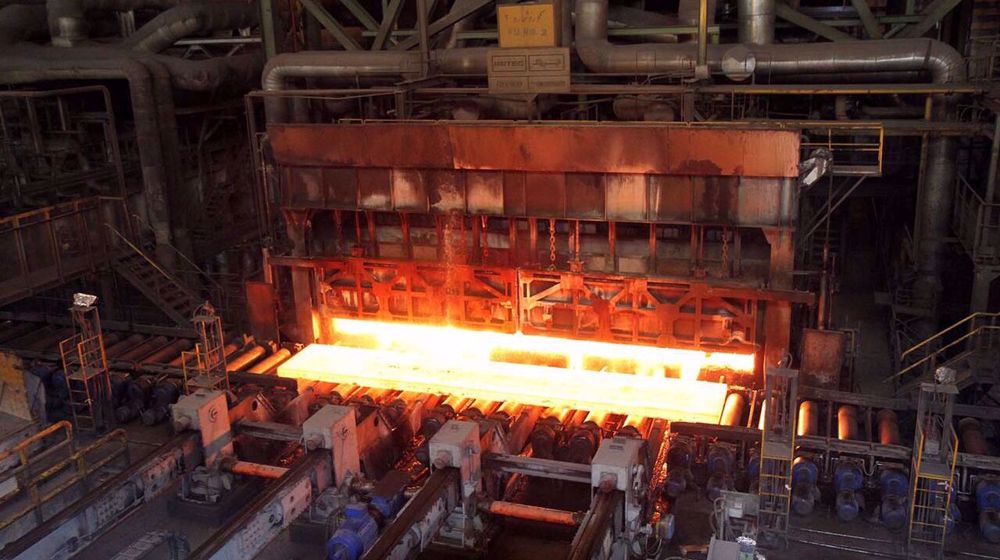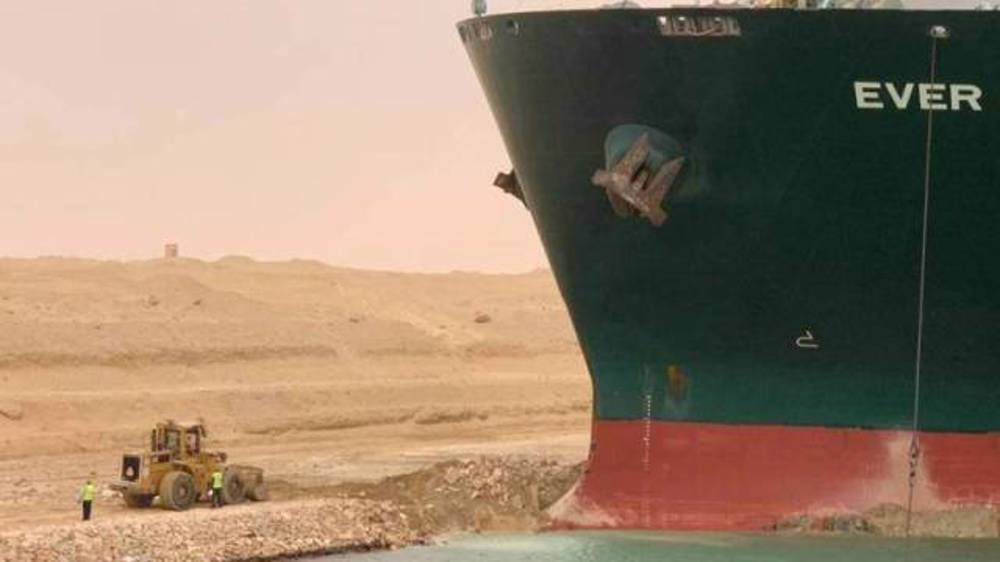Iran says North-South Corridor low-risk alternative to Suez Canal
An Iranian diplomat says the International North-South Transport Corridor (INSTC) can serve as a low-risk, profitable alternative to the Suez Canal, which has been blocked in the past few days, causing billions of dollars in damages every day.
Kazem Jalali, the Iranian ambassador to Moscow, tweeted on Saturday that the INSTC can reduce the travel time [from India to Europe] to 20 days and decrease the costs by 30 percent.
“Therefore, it is a superior option to replace the Suez Canal in transit,” Jalali added.
He said the recent shutdown of the Suez Canal caused by the stranded ship Evergreen indicates that an alternative with a lower level of risk must be considered given the traffic of over one billion tons of goods through the vital waterway.
Iran, together with India and Russia, is pushing forward with the sea and rail corridor that could substantially reduce the time and cost of shipping goods from India to Europe.
The 7,200-km multimode route was proposed by the three countries in 2000, before being joined by 10 Central Asian countries. It envisages a network of ship, rail and road for freight transport that will cut carriage costs by about 30-60% and transit time from 40 days to about 20 days.
The Iranian port city of Chabahar is thought to play a crucial role in reducing dependency on the Suez Canal for transporting cargo to Europe.
Under the 2017 tripartite agreement, India has committed at least $21 billion to the corridor linking Chabahar to Hajigak in central Afghanistan.
The corridor could challenge the Suez Canal’s primacy and give Iran a significant advantage.
These days, the grounding of a huge container ship in the Suez Canal has blocked the vital waterway, causing a backlog of over 300 vessels.
The crisis has crippled global supply chains, forcing companies to consider the expensive option of re-routing vessels around the southern tip of Africa.
Egypt is also losing some $12-14 million in revenue from the canal for each day it is closed, Rabie said.
The MV Ever Given (Evergreen), which is longer than four football fields, has been wedged diagonally across the span of the canal since Tuesday, blocking the waterway in both directions.
The important of Venezuela for Iran
Iran beats traditional rival Russia in freestyle and Greco-Roman wrestling friendly
Rape trials trigger protests against French ‘sexist and misogynistic’ culture
US photographer opens Berlin exhibition with anti-Israel speech
VIDEO | Press TV's News Headlines
VIDEO | US 'non-profit killer’ bill targets pro-Palestinian groups
Explainer: How Yemeni military chased away US aircraft carrier from Red Sea?
French march for women of Palestine














 This makes it easy to access the Press TV website
This makes it easy to access the Press TV website